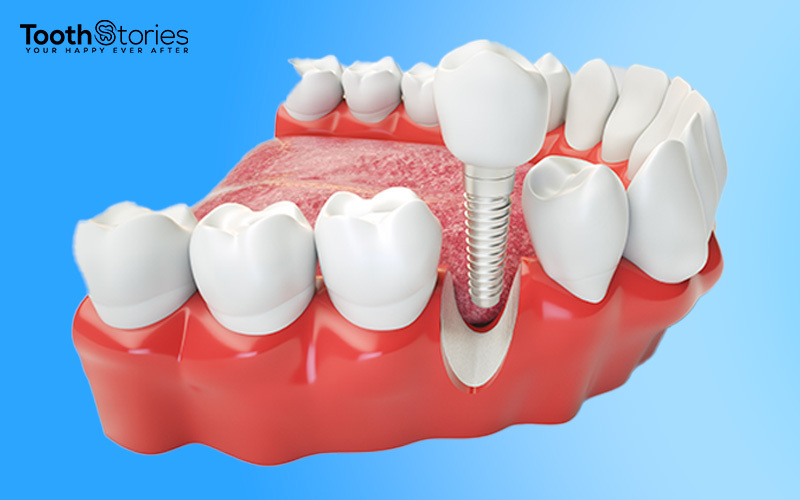
What are Dental Implants and Who are they for?
Dental implants, designed to mimic the natural structure and function of a tooth, have revolutionised the field of dentistry, offering a reliable and aesthetically pleasing solution to replace missing teeth. These devices, albeit small, have become a go-to option for individuals seeking a reliable and long-lasting fix to their dental woes. Whether you’ve lost a tooth due to decay, injury, or other oral health issues, dental implants can restore your smile and confidence. We explore more about dental implants, how they work, and who can benefit from them.
What are Dental Implants?
Dental implants are advanced dental prosthetics surgically placed into the jawbone to replace missing teeth. They are considered a highly effective and durable solution for restoring both the function of teeth and the aesthetics of a smile.
The implant itself is a small titanium post that substitutes the tooth root, which provides support for artificial teeth such as crowns or bridges. Dental implants also have the ability to fuse with the surrounding bone, ensuring greater implant stability and strength within the jawbone. This means that the implants will not slip or move around in your mouth, make noise, or cause bone damage, all of which are damages fixed bridgework or dentures may cause. It also allows for comfortable biting and chewing.
Furthermore, dental implants help preserve the integrity of the jawbone. When a tooth is lost, the underlying bone will begin to deteriorate over time. However, the presence of a dental implant stimulates the bone to prevent bone loss and preserve facial structure.
Eligibility for Dental Implants
While dental implants offer numerous benefits, not everyone is eligible for this treatment. Here are some considerations:
1. Jawbone Density: Implants require support from a healthy amount of jawbone. Anyone with significant bone loss due to gum disease, tooth extraction, or other reasons may require a bone grafting procedure to build up the jawbone density before implant placement.
2. Good Oral Health: Adequate oral hygiene is crucial before undergoing dental implant surgery. Those with gum disease or other oral health issues may need to address these problems before getting implants.
3. Age: Dental implants are generally not recommended for children and teenagers whose jaws are still growing. Once jaw growth is complete, dental implants can be considered.
Who will Require Dental Implantations?

1. Individuals with Missing Teeth: Dental implants are an excellent option for people who have lost their teeth due to reasons such as tooth decay, gum disease, injury, or congenital conditions. Regardless of the number of teeth missing, implants can be used to replace them.
2. Denture Wearers: If you wear dentures, you may consider getting dental implants to improve their stability and functionality. Implant-supported dentures keep dentures secured in place, eliminating issues like slipping, discomfort, or the need for messy denture adhesives.
3. Individuals with Deteriorating Jawbone: Dental implants can help to prevent bone loss by integrating with the jawbone, providing the necessary stimulation to preserve your jawbone strength and density.
Learn More: Implant-Supported Dentures
Looking for dental implants near you? Tooth Stories offers affordable dental implant treatments to help you regain proper function and confidence. Book your appointment with us here.
